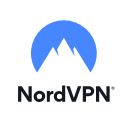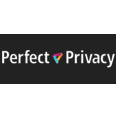How to Watch Disney+ Hotstar in UK Easiest Guide [2026 Updated]
If you have tried to access Disney+ Hotstar in the UK, it is most likely that you have received an error message because you have been blocked due to regional restrictions. To acce

Excellent speeds & advanced privacy. Ad-blocker included. Chrome & Firefox extensions. 24/7 live chat support.

High-speed, unlimited bandwidth. Safe access to your favorite content 5400 ultra-fast servers worldwide.

Advanced privacy features. Very fast & secure VPN service. Popular with Kodi & Firestick users. 24/7 live chat support.

Trusted & established VPN with blistering speeds & rock-solid privacy features. Ad-blocker included. Live chat support.

Super fast & ultra secure. Strong encryption. HD/4K streaming. Chrome & Firefox extensions. Live chat support.

Good speeds & strong security. Proprietary anti-censorship protocol. Live chat support.

Very fast speeds &
good levels of security . Real-time malware protection. Chrome extension. 24/7 support.

Fast VPN streamlined for beginners. Strong encryption & privacy Chrome & Firefox extensions. Live chat support.

It works with all
devices and has a strong Encryption with secure DNS servers. Chrome extenstion.



At 10BestVPN, we take the time to test, review and continuously analyze all of the leading VPN’s in detail. Our dedicated team of analysts follow strict guidelines in selecting and determining the best VPNs for different purposes and categories.
As a pro-privacy organization, it is our desire that you stay ahead of the curve on matters of digital privacy, net neutrality, and censorship. Our regularly updated blog provides you with up to date information on staying safe in a digitally intrusive world.
We constantly identify the best VPN deals that don’t compromise your privacy for profit. Our goal is simple: Stop searching; Start surfing! We’ve got your privacy covered.
An elaborate 62-point test system for any and every VPN
Independent and comprehensive reviews for every VPN
A team of experts with many years of VPN review experience
If you have tried to access Disney+ Hotstar in the UK, it is most likely that you have received an error message because you have been blocked due to regional restrictions. To acce
This is a step by step guide on how to install titanium build on Kodi for an enhanced experience. Kodi is one of the fastest growing free, open-source media organizer software applications
Here are some useful answers to clear your doubt about VPN
The short answer: Depends on your location.
VPNs offer users a degree of privacy with their internet activities, making it extra difficult for your personal data and information or online activity to be stolen or monitored.
Although many countries closely monitor your online activities at varying levels and for varying reasons, VPN usage is legal in most countries. There are plenty of legitimate reasons why you may need the privacy a VPN provides.
However, there are also countries where VPN usage is illegal. This includes countries like Russia, China, Iraq, Oman, U.A.E, and Belarus among others. Certain other countries allow only the usage of approved VPNs, while others impose censorship laws over internet activity that make VPN usage risky.
Even in countries where VPNs are not under ban, using a VPN to access geo-blocked websites or bypass government censorship is illegal.
The short answer: Yes.
The UK is one of several countries with an explicit law that allows law enforcement to track your online activities. This law – the Investigatory Powers Act – passed in 2016 allows British security and intelligence agencies unprecedented access to your online activities.
Still, there is no law in the UK that expressly bans the use of VPNs in the UK. This means that you’re free to use a VPN, if you so please, to ensure the privacy of your online data.
If you’d be using a VPN from the UK, though, it’s good to keep in mind that VPNs based in the UK are under obligation, by the same Investigatory Powers Act, to provide your information when asked by UK security and/or intelligence to do so. If you’d love complete anonymity while using a VPN in the UK, be sure to check out our verified list of the best VPNs of 2022 that do not keep or share your records.
The acronym VPN stands for: Virtual Private Network.
A virtual private network offers you total anonymity whenever your surf the internet. VPNs disguise your internet protocol address, giving you a new address unlinked to your device. The goal? Making your internet activities completely private.
A VPN transforms your online identity, ensuring your actions can’t be traced back to you. But it does more than just disguise your identity. VPNs also offer protection from intruders while you surf the internet over questionable Wi-Fi networks such as public Wi-Fi networks.
Because VPns offer you a chance to surf the internet from virtual locations, it also allows you access content on the web that may be blocked in your location.
The short answer: Depends on your choice of VPN.
VPNs are designed to protect your online activities from potential intruders, while keeping your anonymous on the web. Typically, this involves encrypting your identity to keep it hidden from prying eyes, including your internet service provider (ISP).
But this raises questions about the VPN service provider themselves. Can they not simply track your online activities themselves and gain access to whatever data they desire? The answer depends on your choice of VPN.
The best VPNs are designed with heavy-duty encryption to protect your personal information, even from themselves. The best VPNs also keep no logs of your browsing history, are uber transparent about their privacy policies, and take steps to fix any identified data leaks.
It’s important to note that paid VPNs are generally safer than free VPNs, but we’ve still been able to identify certain free VPNs with solid encryption systems, strictly enforced privacy policies, and a proactive approach to the security of their systems.
The short answer: Everyone
Much as we may try to run away from it, our privacy is at risk. As the world becomes increasingly interconnected, increasingly more privacy loopholes continue to pop up. A lot of your data goes around on the internet, and is gobbled up by varying groups for varying reasons.
Businesses collect your personal data for marketing purposes; governments spy on you for security purposes; ISPs store data on your browsing history which they may choose to sell to anyone interested; and cyber criminals are always prying, looking for potential breach points to attack.
If you’re as concerned about your privacy as we are, all of this is unnerving. But a VPN protects you from it all. It masks your internet identity, making it untraceable by the government and your ISP. It keeps intruders out by running your data through encrypted tunnels. And it also allows you access geo-restricted, geo-blocked, or otherwise censored content.
The short answer: Depends on your VPN and device type.
VPNs are generally easy to install. Modern day VPNs typically come with easy to install apps, meaning you don’t have to bother about manually setting up a secure private connection yourself. Once you identify your desired VPN, simply follow the instructions to install, and start using it.
The real trick here is identifying the right VPN to use. This is why we’ve put together this updated list of the best VPNs of 2022 , and this list of the best free VPNs if you’re looking to test out the VPN experience at no cost.
The VPNs we recommend are tested for security, privacy, and speed of connection. These VPNs have multiple servers in different locations, ensuring you’re able to toggle risk-free from one virtual location to another.
VPN means: Virtual Private Network.
VPNs offer you protection while you surf the internet. They shield your online activity from prying eyes – including the government, your ISP, online brands, and cybercriminals. To offer this level of protection, the VPN routes your internet traffic through an encrypted network which masks your online identity.
You can think of it as an instant body shop for your car. You want to go from point A to B without being detected, so you pass through the shop on your way. There, your car color, registration number and all-round identity are transformed and disguised. On your way out, the car is no longer associated with you – even if it remains the same vehicle.
In similar fashion, when you use a VPN, your internet traffic first goes through the VPN provider’s servers. It emerges from these servers cloaked, ensuring your private information is kept away from your ISP, the government and any others looking to pry.
The short answer: VPNs perform two primary functions – Privacy and Security.
VPNs are typically installed to provide privacy and security while accessing the internet. This is essentially divided into three key roles:
A VPN provides privacy over your internet connection, masking your identity and leaving you virtually untraceable on the net. It keeps out legally allowed intruders looking to collect data on everything from your person to your device details and browsing history.
It provides security from harmful and dangerous intruders who constantly search out opportunities to steal critical personal data like your passwords and banking details. This is especially true when browsing over unprotected public networks.
It helps you bypass location-based internet blockades. This may be censorship by the government or your ISP, or even geo-restrictions by particular websites. By simply switching your virtual location to an allowed location, you can access just about any content on the web.
The short answer: Depends.
VPNs are an essential privacy tool when logging into the internet over a public Wi-Fi network. Public networks like those in the coffee shop, hotel, library, etc. are open to just anybody. This allows cyber criminals to use simple techniques to trick your device into sharing personal information.
Your connection at home, though, is private and likely secure with that password which is too long and complex for you to remember. This means that you have no security fears while accessing the internet over your network. You, therefore, have no reason to invest in a VPN
However, you may consider using a VPN if you want to stay hidden from your ISP or the government. You could also consider it if you wish to stream sports or movie content that is blocked in your region, or access websites banned in your country.
Should you choose to set up your own VPN at home, you’d be faced with the following options:
VPN prices range wildly from the free to the expensive. And while you’d mostly prefer to get something cheaper, the quality is generally expected to be higher as you climb up the pricing scale. Still, there’s some quality everywhere you look.
For the free VPN variety, we’ve identified VPNs like Windscribe, TunnelBear, ProtonVPN, and Hide.me, as some of the best among a number of other solid options.
For the best paid VPN variety, we’d find VPNs like CyberGhost, Private Internet Access, NordVPN and IPVanish amongst the leaders of a group of solid paid VPNs. Many of these have multiple pricing plans, depending on your needs and usage level.
There are plenty of free VPNs on the internet. These VPNs offer each individual a chance to enjoy the numerous benefits of a VPN without having to dip into their pockets. This makes it a great deal, particularly if you’re looking to get a feel of VPN usage or have little to do with a VPN.
You’d have to be careful, though, many free VPNs are below par on many fronts due to limited funding. To ensure you’re selecting the best free VPN, here’s what you’d need to consider:
The short answer: Yes, but you’d have to select carefully.
Setting up a VPN costs money. Everything from getting the servers and keeping them running for is expensive. This means that VPN service providers have to find a way to ensure they get paid for their services. It is no surprise, then, that many free VPNs are a hotbed for privacy violations.
However, there are still a number of quality free VPNs on the market. The best free VPNs are about as safe as any you’d find in the premium category. These VPNs adopt a no-logging policy that ensures they immediately dispose of your personal data as it comes.
So, the best free VPNs carry no risk, no hidden charges, and no security or privacy leaks.
The short answer: If you do a lot of browsing on your phone, by all means do!
A virtual private network is a network of servers that encrypts your data between the point where it is sent and its destination. Thanks to this encryption, it keeps your data safe from the prying eyes of your ISP and the government who constantly monitor your online activity.
VPNs also have many more benefits. Hosted in many different locations around the world, VPNs give you access to content on the web with geo restrictions. VPNs also offer protection from potentially dangerous cyber criminals looking to steal your data through your network connection.
The point? There are many benefits to be had from using a VPN, and this as much the case when you run a VPN on your PC or phone. If you do a lot of browsing on your phone or mobile device, especially on shady public networks, by all means use a VPN on your phone.